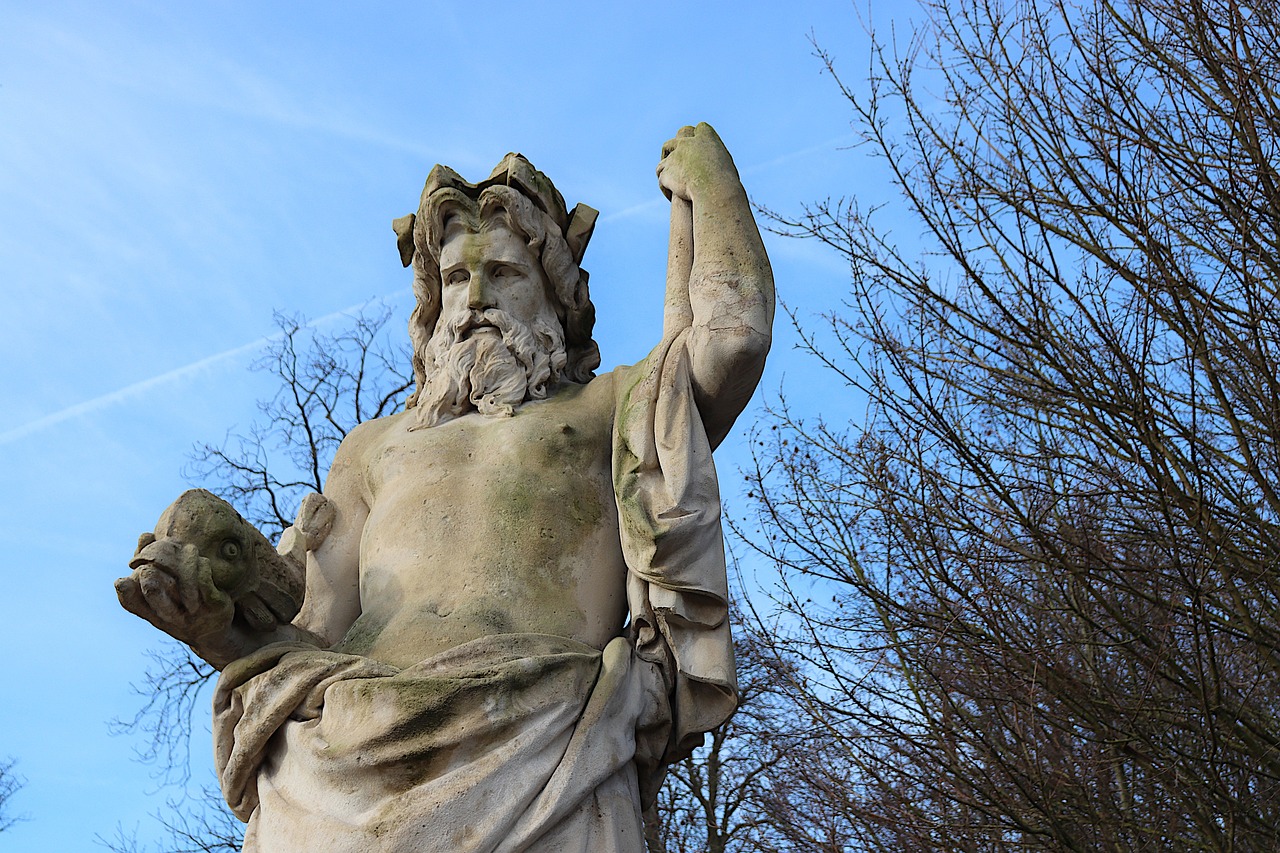Zeus is the supreme god of Greek mythology. Moreover, this deity does not leave indifferent even to modern society, his name is actively used to this day in different spheres.
Zeus is the son of Kronos and his wife Rhea. King Kronos is the god of agriculture, who was predicted by his father Uranus (of the sky) to die at the hands of one of his Titans sons. The disturbing prophecy awakened the supreme god's paranoia: his wife bore him children, and he swallowed them one by one. Thus he swallowed Hestia, Demeter, Hera, Hades and Poseidon.
His wife, pregnant with their last child Zeus, did not want to suffer the same fate and hid the newborn child on the island of Crete, while she handed him a swaddled stone (the monolith "omphalite") which he swallowed. Soon the deception was discovered, Cronus searched for an heir, but to no avail: when the infant cried, Curetes (servants of Rhea) knocked their spears against their shields so that the king would not hear the cry of little Zeus - and so the only son grew up and matured.
The adult heir began a war against his father and his henchmen, the Titans, which lasted ten years and ended in a decisive victory for Zeus. The new leader of Olympus made the parent "return" his brothers and sisters from his "womb", and sent the father himself into eternal exile, to Tartarus (analog of Christian hell).

Close relatives of the new leader began to rule with him, according to their "positions": Hestia - goddess of the home, Hera - wife and queen, Demeter - patroness of agriculture, Hades - ruler of the underworld of the dead and Poseidon - lord of the seas.
Thus Zeus became the ruler of heaven and earth. His deeds were sung in the hymns of Callimachus: "O feats of arms, your strength and power are that of a king's throne. Who can praise your deeds? There is none, nor will there be, who can praise Zeus' deeds.
Zeus was a polygamous god. He had three spouses and had children by two of them:
Zeus is a very amorous man, often transforming into animals to watch other goddesses and even humans. Of course, lightning-fast romances gave birth to children who, when they grew up, became heroes of legend:
- half-human gods - Hercules, Harmony, Helen, Perseus;
- other famous gods were grown-up children of Zeus: twins Artemis, Apollo - god of light and goddess of hunting, Dionysus - god of agriculture, Persephone - goddess of fertility and Eros - god of love.
The exact length of his reign is unknown. Zeus ruled heaven and earth and shared power over the natural elements with his other brothers: Hades - the underworld of the dead and Poseidon - the sea. According to legend, his kingdom was eternal summer. The ruler defended all the wronged, made sure that justice prevailed in his land, and for this he drew up a code of laws, assisted by the goddess of justice. The supreme god was thought to ensure that all the customs and traditions of the people were strictly observed and that the home and family were preserved.
He had the power to decide whom to judge and whom to pardon, and all other deities were subordinate to him.
Every four years the Hellenes would gather in the city dedicated to him, the god's palace on Mount Olympus, to honour his memory. This was the site of the Olympic Games, a sporting competition between competitors that still takes place today (albeit with some differences).
Zeus was worshipped for over 300 years, but it was not until 470 BC that donations began to be collected to build the temple. Construction took about 10 years, but it was well worth it: the massive columns and impressive statues of the pantheon of deities were inscribed in the golden pages of history.
There was also a statue of the deity Zeus, one of the ancient Seven Wonders of the World. Unfortunately, the sculpture has not survived to this day. According to one version, it was transported to Constantinople and installed in the Larsa Palace where it burned up in a fire in 475 A.D.; according to another version, it burned up together with the temple in 426. Unfortunately, the exact image of Zeus is unknown; however, there are descriptions of ancient Greek historians and copies of sculptures of smaller size (for example, the Roman statue of Jupiter is considered the closest to the Greek original): the god sits on a golden throne, on his head he has a wreath, in his right hand he holds a statue of victory - the Nike, and in the right - a sceptre and eagle next to it.
The statue was made of expensive materials: precious stones, ivory and gold. The exact dimensions of the temple are also unknown: its height could have been 12 to 17 metres.
Zeus is a thunderer of power, a paragon of good and evil at the same time. The main association associated with the deity is the lightning he holds in his hands, but not only. There are other attributes, too:
Zeus is a mythical figure who is still known today, and his name is heavily used in modern culture.
For example, in the gambling industry - there are games that feature Zeus:
The range of entertainment is constantly expanding, as the theme of the mythical character is very popular and demand is only growing.
Zeus is also a popular character in the sensational game Dota 2.
And, of course, famous filmmakers could not pass by such a hero, and created their own interpretations in feature films and TV series:
Zeus is a very famous character who will be popularised for many decades, if not more!